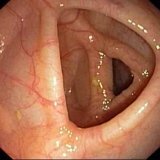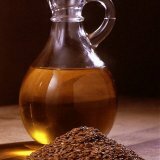Treatment of ulcerative colitis

Recently, the number of diseases from the intestine has increased very much among the adult population. Perhaps its adverse effect is caused by environmental factors, genetic predisposition, bad habits, decreased immunity, eating disorders, etc. Therefore, frequent symptoms for many people are the symptoms of ulcerative colitis.
Diagnosis and treatment.
Treatment of ulcerative colitis at the moment is significantly different from diagnosis and treatment even 10 years ago. Doctors approach each patient individually, a good attitude of medical personnel and attentive attitude contribute to faster recovery.
Irritable bowel syndrome or ulcerative colitis, is a functional bowel disorder, which lasts three months, and is repeated throughout the year. The main symptoms of ulcerative nonspecific colitis and irritable bowel are not particularly different. With these diseases, there is discomfort or pain in the abdomen, a change in the frequency of the stool, changes in the consistency of stool, frequent desires for defecation, flatulence, mucus in the stool.
A number of tests should be performed to establish the correct diagnosis. Untimely treatment of functional intestinal disorders often leads to the development of severe diseases, including ulcerative colitis develops.
The main problem with ulcerative nonspecific colitis is the inflammatory process. This disease forms an organic defect in the intestinal mucosa. The chair becomes more frequent 20-40 times a day, feces of mucus and blood are observed in the stool, there are tenesmus( false urge to urinate or defecate).The general condition of the patient worsens. The main sign of ulcerative nonspecific colitis, through which a diagnosis is made, is the formation of sores on the walls of the intestine.
For the diagnosis, the following studies are available:
- Colonoscopy and rectoscopy, these are endoscopic studies that allow differentiating ulcerative nonspecific colitis;
- laboratory tests, that is, biochemical and clinical tests of blood and feces are conducted. Also, a sample is taken for fecal calprotectin, which is a kind of marker in the presence of an inflammatory process in the intestine.
- X-ray examination. Basically, they are carried out with suspicion of a tumor in the intestine.
Correctly diagnosed, this is only half the success. The second half depends entirely on the correct treatment. The choice of treatment depends on many factors. First of all, on the severity of the disease, secondly - on the main symptom, and, thirdly, on the way of life.
Ulcerative colitis is a very dangerous disease, especially its complications. Fistulas can form in neighboring organs, which lead to the risk of peritonitis formation and further formation of malignant tumors. Often, when complications occur, you have to have surgery. In other cases, medicamental treatment of ulcerative nonspecific colitis can help.
As a rule, the first thing a doctor prescribes is a diet( table 4 for Pevzner, a complete diet enriched with vitamins) and psychosocial support. Further, treatment of ulcerative colitis, directed to the elimination of irritable bowel syndrome, and to the elimination of defects on the walls of the intestine is prescribed.
Ulcerative colitis is a very progressive disease with a high degree of death. The cause of death of the patient becomes peritonitis, which develops as a result of perforation of ulcers on the walls of the intestine and the entry of intestinal contents into the abdominal cavity. At the time of perforation, there is heavy bleeding, which can be the main cause of death.
Treatment of ulcerative nonspecific colitis should be performed by a proctologist. During the treatment, the patients are completely restored after properly prescribed treatment. Assign corticosteroids, drugs 5-ASA, hormones, cytostatics, but often these drugs are not enough to complete recovery.
Medication.
Medical treatment of non-specific colitis includes anti-inflammatory drugs - sulfasalazine and corticosteroids, as well as drugs that regulate the immune system, i.e. immunomodulators. Anti-inflammatory drugs are mainly taken orally, as well as in the form of therapeutic enemas. To increase the immunity appoint mercaptopurine, methotrexate, azathioprine, cyclosporine.
As for aminosalicylic acid preparations, they are very similar to aspirin. But aspirin with ulcerative colitis is not effective. Preparations containing aminosalicylic acid are effective in close contact with affected tissues, which is why they are prescribed in enemas. But in the event that ulcers are too far in the intestine, the administration of drugs in this case is ineffective. Therefore, the drugs are administered orally. In the stomach and small intestine, these drugs are not absorbed, this allows them to reach the large intestine, where the affected areas are located.
Treatment of ulcerative colitis often occurs with the introduction of phytotherapy. It plays a supporting role in the treatment of this complex disease. The use of medicinal herbs facilitates the patient's condition, heals ulcers, erosion and significantly reduces blood loss. Patients are more likely to cope with anemia and recover. The use of medicinal herbs reduces depressive symptoms. In addition, when using phytotherapy, hormone therapy is quickly canceled.
With regard to prevention, the main causes of this disease are not known. But nevertheless it is necessary to avoid negative factors, to reduce the frequency of relapses with the help of drug treatment. The main preventive actions for diseases of the intestines is diet therapy, avoidance of stressful situations.



